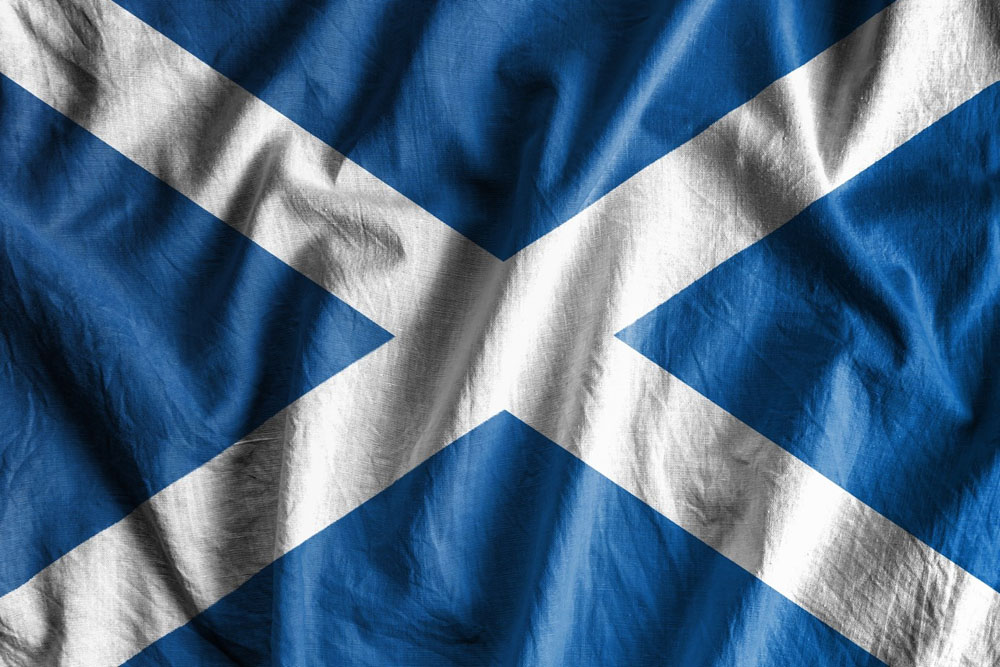
Hardly any other country in Europe seems as mystical, as shrouded in legend, as mysterious as Scotland. With its seemingly endless hills and moors in the Highlands, its ancient castles, its clans that still exist today and its deep, unfathomable and mist-shrouded lochs, Scotland seems like a country from times long past. When you think of Scotland, you think of Loch Ness, kilts and bagpipes, whiskey and Mel Gibson as William Wallace in Braveheart.
But this is only one side of Scotland, the secluded and seemingly idyllic side. Of course, this part of the United Kingdom also has vibrant cities, lively hustle and bustle, tempting shopping streets and a wide range of art, culture and nightlife options. But is Scotland also a suitable destination for a language study trip? Don't the Scots speak a peculiar dialect that seems to be related to English, but makes it impossible for language students to choose this country as a destination for their language study trip? Is that the case?
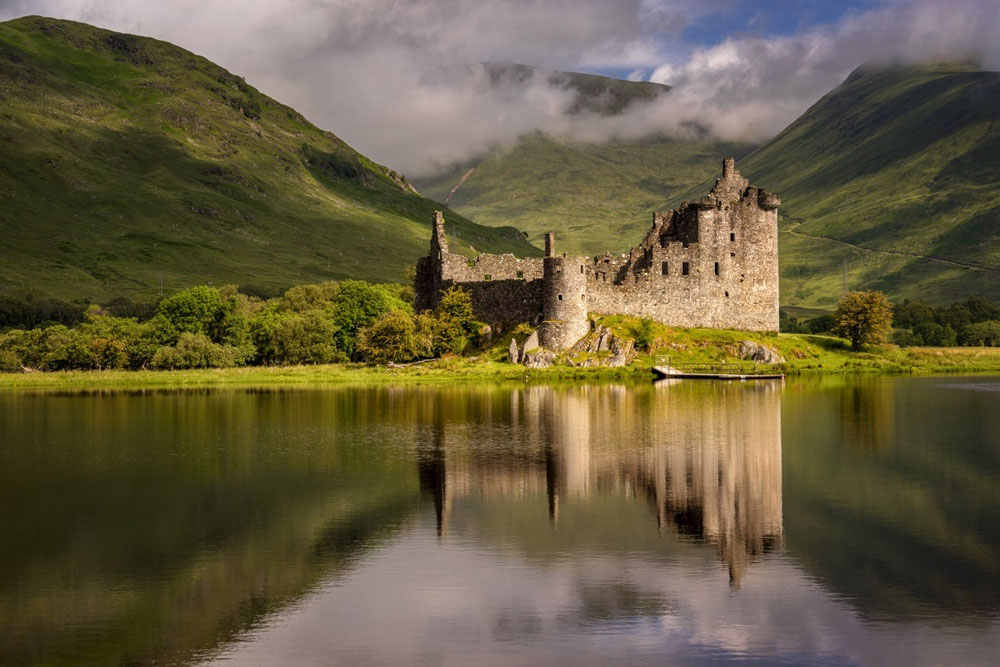
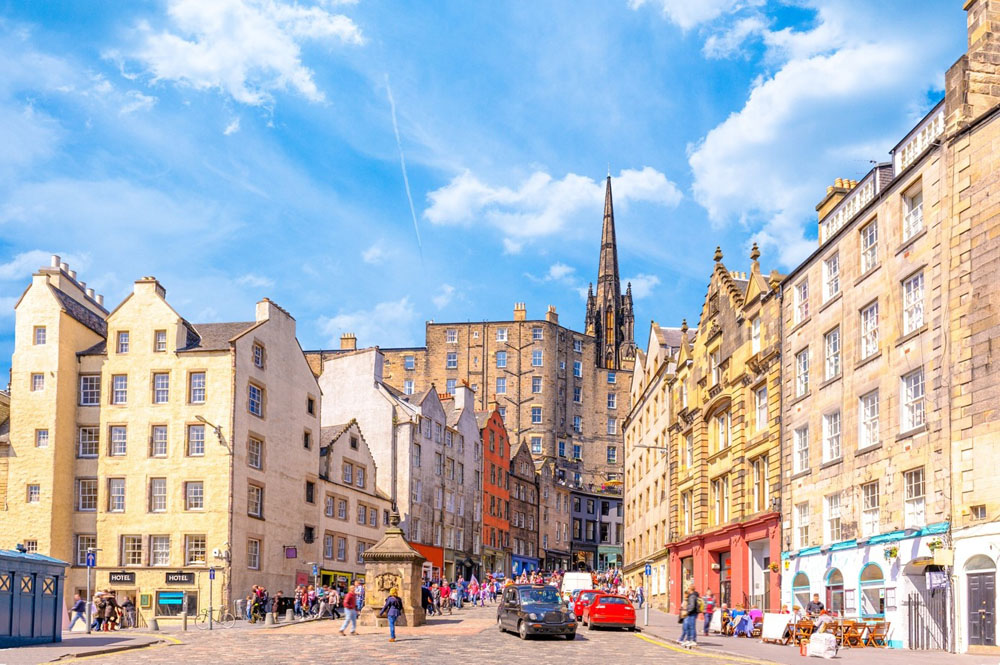
Glasgow and Edinburgh are the most populous cities in Scotland. Glasgow is the third largest city in the United Kingdom of Great Britain and Northern Ireland after London and Birmingham. With around 600,000 and just under 460,000 inhabitants respectively, both major cities attract millions of tourists every year, who also use them as an ideal starting point for excursions to the Highlands, which are not too far away.
Most language students also choose Edinburgh and Glasgow for their language study trip to Scotland, where most of the country's language schools are located. There are also some language schools in Aberdeen, Stirling, Perth, Kirkwall and Dundee, although the choice there is rather limited.
Edinburgh in particular holds a magical attraction for language students. As the country's cultural capital with numerous artistic events such as the Fringe Festival or the Royal Edinburgh Military Tattoo dance and bagpipe spectacle, as well as a historic city with the medieval Old Town, Edinburgh Castle, winding alleyways, sandstone buildings, the Palace of Holyroodhouse and Arthur's Seat, this city enchants with its very own charm and makes it one of the country's most popular destinations for tourists and language students.
Glasgow, the country's largest city, is less than an hour's drive from the Scottish Highlands, making it ideal for weekend trips to the nearby Loch Lomond and The Trossachs National Park. But the city itself also fascinates with its diversity, its grandiose architecture, numerous museums and art galleries and its lively nightlife.
Or how about Aberdeen, with its beautiful beaches, dune landscapes, granite buildings and one of the best dolphin-watching vantage points? Or Dundee, located directly by the sea, as a modern city with numerous shopping opportunities?


Edinburgh can be reached from Zurich Airport in just over two hours, Glasgow in around three and a half hours, so Scotland is also ideal for shorter language study trips of one or two weeks. Scotland, like Ireland, England or Malta, is therefore ideal for attending a language course for a few weeks and not wasting too much time traveling to and from the country. But of course, longer stays in the country are also just the thing to improve your English skills and to really enjoy Scotland.
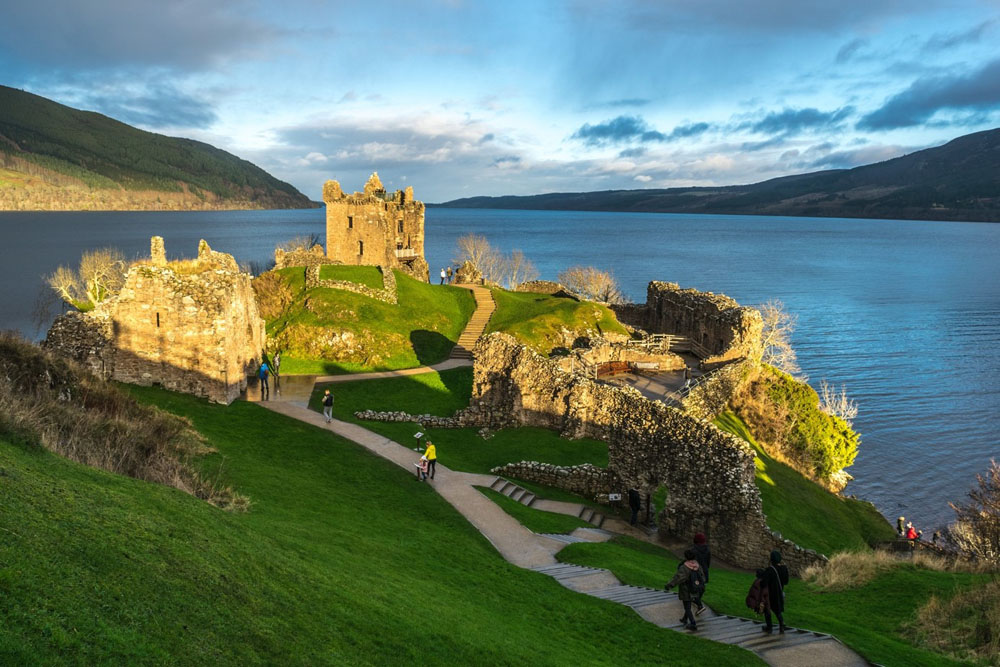
No matter in which city you plan your language study trip in Scotland, you can expect changeable weather everywhere. Even in the warmest months, temperatures rarely rise above 20°C, although exceptions are of course possible here too, such as in the hot summer of 2003 with maximum temperatures of over 30°C. Nevertheless, you should expect a moderate oceanic climate in Scotland, with mild temperatures on the west coast and cooler days in the east.
The best time to visit is from May to September, with the warmest months being July and August at around 18-20°C. With water temperatures of around 15°C in midsummer, swimming in the sea or in the lakes is probably more for the hardy.
You should never do without waterproof clothing and good footwear when traveling to Scotland, nor should you do without mosquito spray, as the mild, humid climate here also magically attracts mosquitoes, the midges.
The range of English courses on offer at Scottish language schools is not to be sneezed at either. In addition to standard and intensive language courses, semi-intensive courses and light or vacation language courses are often offered, which differ mainly in the number of lessons per week. There are also exam preparation courses at almost every language school in the country, which prepare students for the most popular language diplomas and language tests, such as IELTS, TOEFL or the Cambridge English exams, such as the First Certificate in English (FCE), the Cambridge in Advanced English (CAE), the Certificate of Proficiency in English (CPE) or the Business English Certificates (BEC) at Preliminary, Vantage and Higher level.
Not every language school in the country offers all language courses at the same time, so you should always bear this in mind when choosing a language school. The minimum duration of the individual courses can also vary, not necessarily depending on the school, but depending on the course you choose. Preparation courses for language diplomas usually have a fixed minimum duration, usually six weeks in the case of Cambridge preparation courses. Conventional English courses can usually be booked for as little as one week, with some schools for as little as two weeks.
In terms of language, it makes no difference which of the country's larger cities you spend your language vacation in. Although Scottish Gaelic, a Celtic language, and Lowland Scots, a West Germanic language, are still spoken by many Scots, almost all Scots speak fluent English. There are just under 60,000 speakers of Scottish Gaelic in Scotland. And although around 30 percent of Scotland's inhabitants still speak Scots and this dialect is widespread around Edinburgh, Glasgow, Dundee and Aberdeen, only English is spoken on language courses in Scotland's language schools. However, if you want to learn Lowland Scots (Broad Scots or Urban Scots), there are of course also a number of language schools in the country.
It should be noted that Scottish English, which is the official language in the country, differs slightly from standard English in some areas, especially in terms of pronunciation. Therefore, before choosing a language school and a language course, make sure you find out whether Scottish English or British English (Received Pronunciation RP) is being taught.

As a Swiss citizen, you have no problems entering Scotland. As Scotland is part of the United Kingdom, the same entry regulations apply there as for England, allowing Swiss nationals resident in Switzerland to enter the country with a valid Swiss passport or even a valid ID card. Unlike in many other countries, passports or ID cards do not necessarily have to be valid for at least six months after leaving Scotland; validity for the duration of the stay is sufficient. It is therefore also possible for those who decide to come to Scotland at very short notice to enter the country without any problems.
Glasgow's crime rate is very high compared to many other cities in Scotland, especially on the outskirts where mass unemployment is a big issue and youth crime is also very common. Nevertheless, as a language student you generally don't have to worry any more than in other European cities, whether in Glasgow, Edinburgh or any of the other Scottish cities. If you proceed with common sense, you usually have little to fear in Scotland.
However, the British authorities also warn of international terrorist attacks in Scotland, as well as in England, Wales and Northern Ireland. They currently (2017) classify the United Kingdom at warning level four out of five, with one standing for low and five for critical. Warning level four is "severe - attack is highly likely".
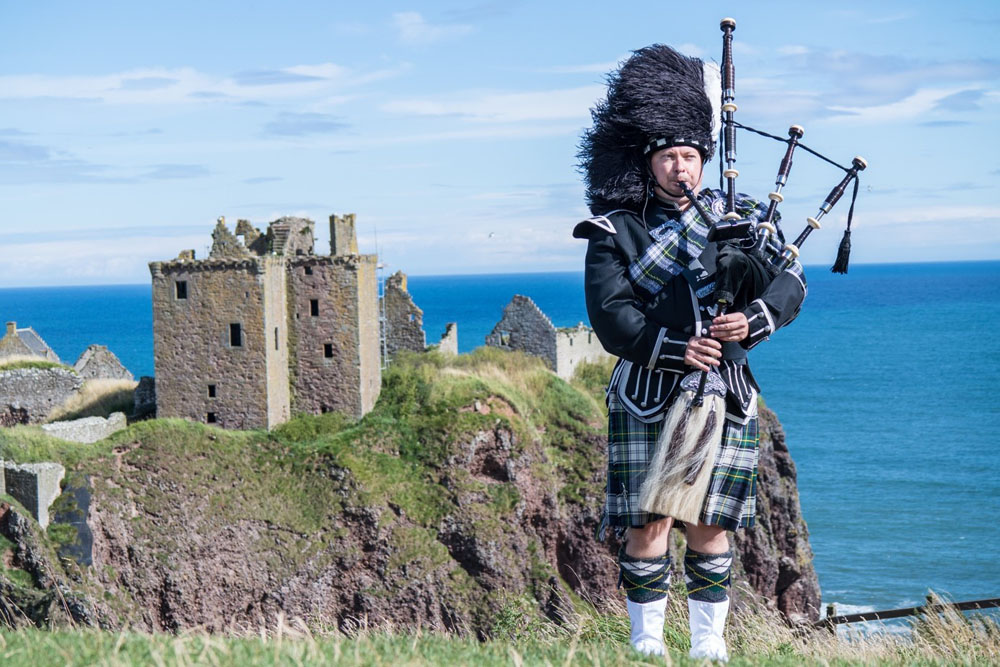
If you are not unsettled by these reports (the probability of dying in a domestic accident is far greater than dying in a terrorist attack) and would like to spend a language study trip in Scotland, you should budget around GBP 1,600 to 2,000 for a four-week standard language course with accommodation in a host family with half board. Depending on the exchange rate, this corresponds to around CHF 2,000 to 2,500. Please note that the offers are quoted in British pounds and not in francs or euros and you should perhaps keep an eye on the exchange rate some time in advance in order to find the best possible time to book. For some schools, there are also registration fees, material costs and, if applicable, transfer costs, which must also be taken into account, as well as, of course, other meals, leisure expenses and costs for excursions and, in the case of other accommodation, such as in a hall of residence, surcharges.
The flight is also charged separately, which you usually have to organize yourself. Non-stop flights can be booked for less than CHF 200 and you rarely pay more than CHF 400. This means that a four-week language study trip to Scotland is comparatively cheap, slightly more expensive than in Malta, but cheaper than in England, Hawaii or New Zealand.